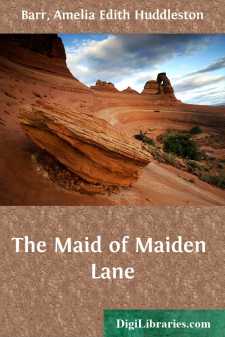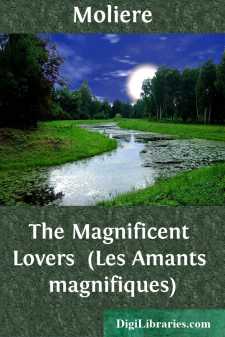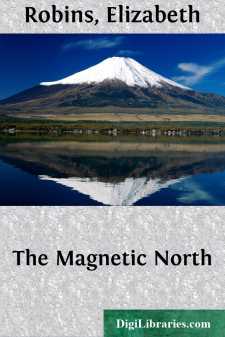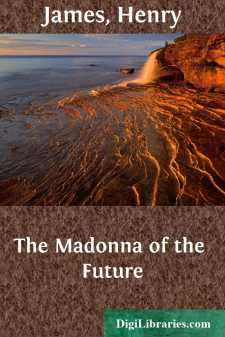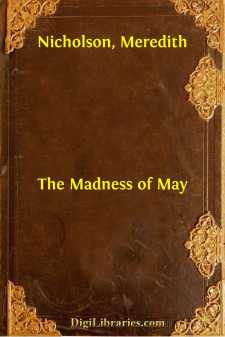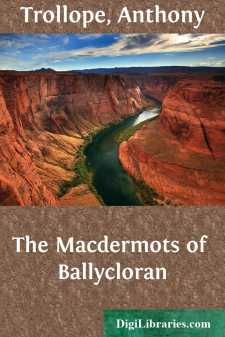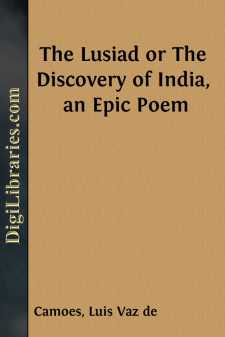Fiction
- Action & Adventure 180
- Biographical 15
- Christian 59
- Classics
- Coming of Age 5
- Contemporary Women 3
- Erotica 8
- Espionage/Intrigue 12
- Fairy Tales, Folklore & Mythology 236
- Family Life 169
- Fantasy 117
- Gay 1
- General 596
- Ghost 32
- Historical 808
- Horror 43
- Humorous 160
- Jewish 25
- Legal 4
- Medical 22
- Mystery & Detective 315
- Political 49
- Psychological 41
- Religious 64
- Romance 159
- Sagas 11
- Science Fiction 730
- Sea Stories 113
- Short Stories (single author) 537
- Sports 10
- Suspense 1
- Technological 8
- Thrillers 2
- Urban Life 31
- Visionary & Metaphysical 1
- War & Military 173
- Westerns 199
Classics Books
Sort by:
CHAPTER I THE HOME OF CORNELIA MORAN Never, in all its history, was the proud and opulent city of New York more glad and gay than in the bright spring days of Seventeen-Hundred- and-Ninety-One. It had put out of sight every trace of British rule and occupancy, all its homes had been restored and re-furnished, and its sacred places re-consecrated and adorned. Like a young giant ready to run a race, it...
more...
by:
Moliere
FIRST INTERLUDE. The scene opens with the pleasant sound of a great many instruments, and represents a vast sea, bordered on each side by four large rocks. On the summit of each is a river god, leaning on the insignia usual to those deities. At the foot of these rocks are twelve Tritons on each side, and in the middle of the sea four Cupids on dolphins; behind them the god Æolus floating on a small...
more...
by:
Booth Tarkington
Chapter I Major Amberson had "made a fortune" in 1873, when other people were losing fortunes, and the magnificence of the Ambersons began then. Magnificence, like the size of a fortune, is always comparative, as even Magnificent Lorenzo may now perceive, if he has happened to haunt New York in 1916; and the Ambersons were magnificent in their day and place. Their splendour lasted throughout...
more...
by:
Elizabeth Robins
CHAPTER IWINTER CAMP ON THE YUKON"To labour and to be content with that a man hath is a sweet life; but he that findeth a treasure is above them both."вÐâEcclesiasticus. Of course they were bound for the Klondyke. Every creature in the North-west was bound for the Klondyke. Men from the South too, and men from the East, had left their ploughs and their pens, their factories, pulpits,...
more...
THE MAGICIAN'S SHOW BOX. There was once a boy, named Gaspar, whose uncle made voyages to China, and brought him home chessmen, queer toys, porcelain vases, embroidered skullcaps, and all kinds of fine things. He gave him such grand descriptions of foreign countries and costumes, that Gaspar was not at all satisfied to live in a small village, where the people dressed in the most commonplace way....
more...
by:
Henry James
It relates to my youth, and to Italy: two fine things! (H--- began). I had arrived late in the evening at Florence, and while I finished my bottle of wine at supper, had fancied that, tired traveller though I was, I might pay the city a finer compliment than by going vulgarly to bed. A narrow passage wandered darkly away out of the little square before my hotel, and looked as if it bored into the...
more...
THE MADNESS OF MAY I Billy Deering let himself into his father’s house near Radford Hills, Westchester County, and with a nod to Briggs, who came into the hall to take his hat and coat, began turning over the letters that lay on the table. “Mr. Hood has arrived, sir,” the servant announced. “I put him in the south guest-room.” Deering lifted his head with a jerk. “Hood—what Hood?”...
more...
by:
Anthony Trollope
CHAPTER I. BALLYCLORAN HOUSE AS FIRST SEEN BY THE AUTHOR. In the autumn, 184—, business took me into the West of Ireland, and, amongst other places, to the quiet little village of Drumsna, which is in the province of Connaught, County Leitrim, about 72 miles w.n.w. of Dublin, on the mail-coach road to Sligo. I reached the little inn there in the morning by the said mail, my purpose being to leave...
more...
by:
John Drinkwater
WHAT IS POETRY? If you were to ask twenty intelligent people, "What is the Thames?" the answer due to you from each would be—"a river." And yet this would hardly be matter to satisfy your enquiring mind. You would more probably say, "What do you know of the Thames?" or, "Describe the Thames to me." This would bring you a great variety of opinions, many...
more...
In undertaking, at the publishers' request, the function of editor of Mickle's Lusiad, I have compared the translation with the original, and, in some places, where another translation seemed preferable to, or more literal than, Mickle's, I have, in addition, given that rendering in a foot-note. Moreover, I have supplied the arguments to the several cantos, given a few more explanatory...
more...


